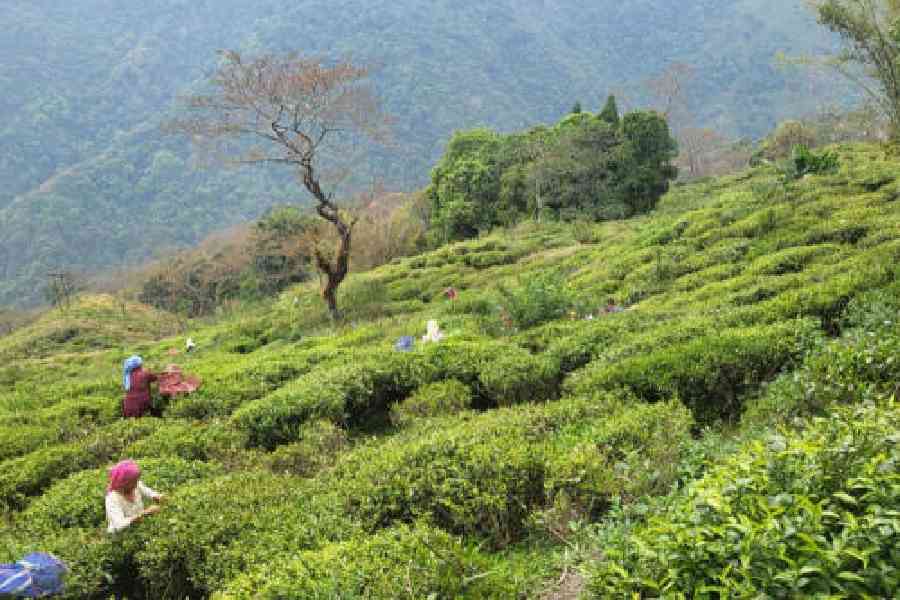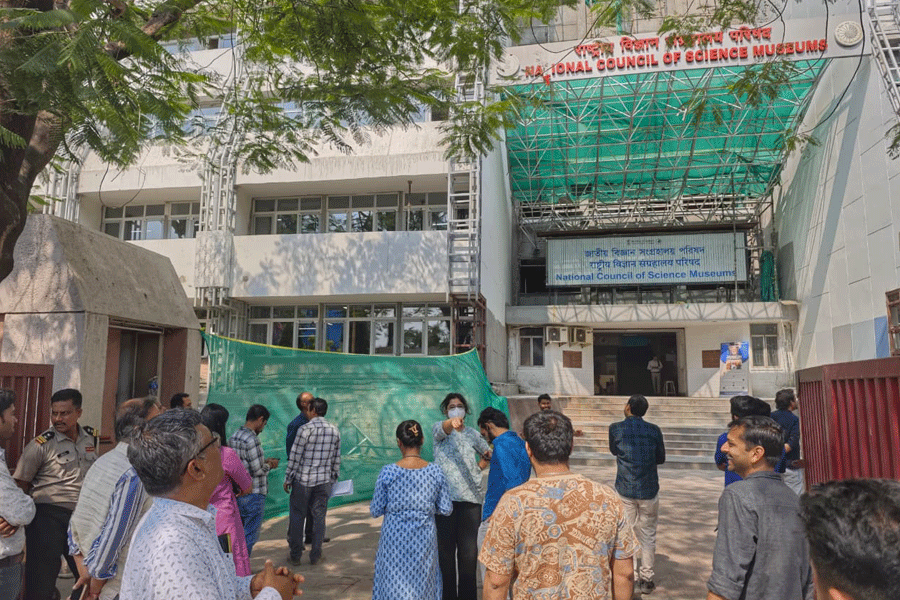Two Darjeeling tea gardens reopened on Sunday after a year, offering a glimmer of hope amid one of the toughest periods in recent history for the industry.
Bagaria Group took over the management of Pandam and Kalej Valley tea gardens in Darjeeling.
“The state government requested me to take over the two gardens as there were livelihood concerns,” S.S. Bagaria, the chairman and managing director of Bagaria
Group, said.
Kaley Valley tea garden used to employ around 400 workers while Pandam had around 150 workers on its rolls when both the gardens closed a year back.
Earlier this week, the group also took over the management of the Panighata tea garden, which opened after almost 10 years. The Panighata garden falls within Darjeeling district but does not come under the Darjeeling Tea industry.
The Bagaria Group has been in the Darjeeling Tea industry for the past 25 years and is also running three other gardens — Gayabari, Phuguri and Orange Valley — apart from the three they have now recently acquired.
“We also run the Bhubrighat Tea Garden in Assam,” said Bagaria.
Bagaria, who also formerly chaired the Darjeeling Tea Association, admitted that the industry was passing through a difficult phase.
“We, however, have one advantage in the sense that we are direct exporters of Darjeeling Tea and we do not sell in the local market,” said Bagaria.
While Gayabari tea garden produces around 2.5 lakh kilos of made tea annually, Phuguri produces 1.5 lakh kilos and Orange Valley makes 1.10 lakh kilos of made tea annually.
Kaley Valley was producing around 1 lakh kilos of made tea and Pandam used to produce around 50,000 kilos of made tea before their closure.
“We hope to touch 50 to 60 per cent of those figures this year as we have already lost two months of production this year,” said Bagaria.
Darjeeling Tea recorded one of the lowest productions in its 169 years history of commercial production in 2024.
Data released by the Tea Board of India stated that Darjeeling produced only 5.6 million kilos of made tea in 2024.
The Darjeeling Tea industry comprises 87 gardens of which eight are still closed.
In 2017, the Darjeeling tea industry produced 3.21 million kilos of made tea. But a planter explained that in 2017, the industry saw 104 days of strike and hence the figure wasn’t comparable to other years. “The 2024 figure of 5.6 million kilos is alarming,”
he said.
Issues like the loss of the Darjeeling market to Nepal tea, high absenteeism among workers and slow replanting of bushes by the management due to high costs are some reasons behind the decline in production of Darjeeling Tea.










